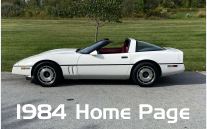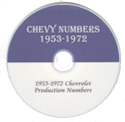 1984 Trivia |
 1985 Trivia |
 1986 Trivia |
 1987 Trivia |
 1988 Trivia |
 1989 Trivia |
 1990 Trivia |
 1991 Trivia |
 1992 Trivia |
 1993 Trivia |
 1994 Trivia |
 1995 Trivia |
 1996 Trivia |
 Stickers & Calendars |
Home |
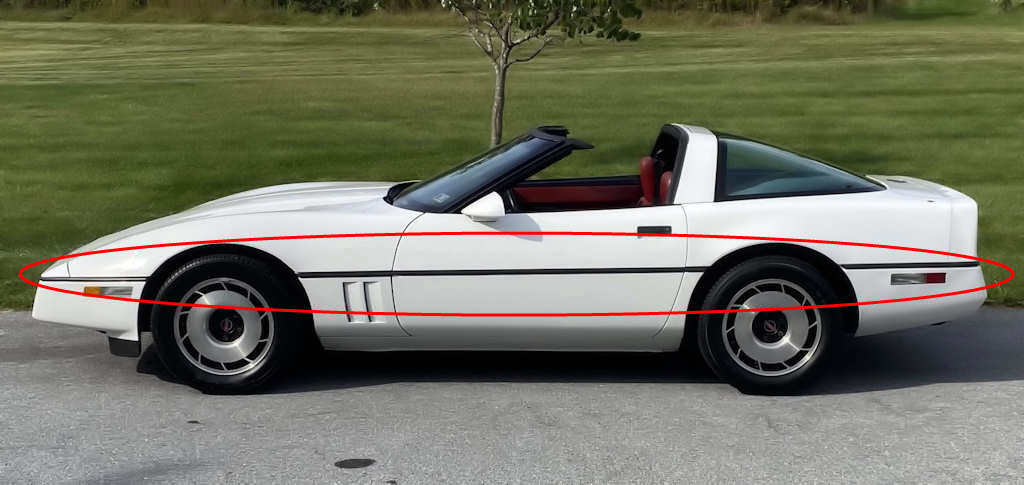
The 1984 Corvette is designed without fiberglass seams on exposed panels
to eliminate factory finishing. The exterior seams were under the rub
strip extending around the body.
The C4 Corvette was completely redesigned and festered many new engineering changes from it's C3-era predecessors. A completely new chassis and a sleeker, more modern styling highlighted the C4-era Corvette.
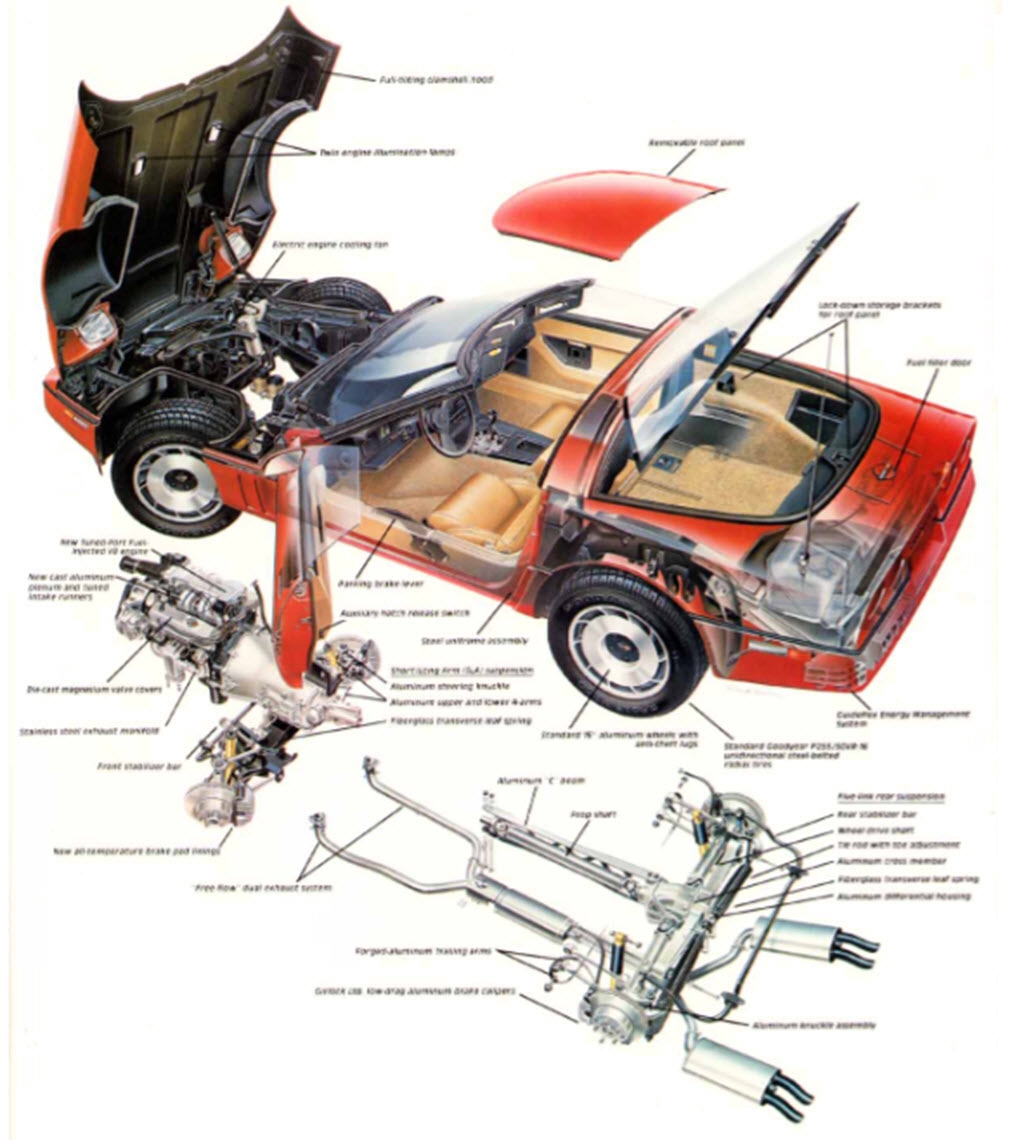
Known Issues
![]() The oil pressure switch can fail, causing the engine to shut off.
The oil pressure switch can fail, causing the engine to shut off.
![]() The distributor module tends to overhead and fail.
The distributor module tends to overhead and fail.
![]() A bad fuel pump relay can cause the pump motor in the fuel tank to fail,
causing ignition failure.
A bad fuel pump relay can cause the pump motor in the fuel tank to fail,
causing ignition failure.
![]() Mass Air Flow Sensor and Throttle Position Sensor can fail due to improper
voltage, causing ignition failure.
Mass Air Flow Sensor and Throttle Position Sensor can fail due to improper
voltage, causing ignition failure.
![]() Dirty or damaged fuel injectors can cause rough running and poor idle.
Dirty or damaged fuel injectors can cause rough running and poor idle.
![]() The rear of the intake manifold is prone to leaking.
The rear of the intake manifold is prone to leaking.
![]() The headlamp motors use nylon gears and tend to wear over time.
The headlamp motors use nylon gears and tend to wear over time.
![]() The dash is known to short-circuit, causing the instruments to flash,
dim, or completely blackout.
The dash is known to short-circuit, causing the instruments to flash,
dim, or completely blackout.
![]() Due to the high side rails on the lower edge of the driver and passenger
doors, getting out can be difficult. As a result, the outside seat bolsters
tend to fatigue, causing a number of issues – leather deterioration,
tearing, structural fatigue of the bolster sub-assembly.
Due to the high side rails on the lower edge of the driver and passenger
doors, getting out can be difficult. As a result, the outside seat bolsters
tend to fatigue, causing a number of issues – leather deterioration,
tearing, structural fatigue of the bolster sub-assembly.
Callaway SuperNatural LM
Callaway was still in the business of making special Corvettes like this 1984 SuperNatural LM. Body modifications such as the forward-tilting nose and massive spoiler in the rear make it stand out from a 'normal' 1984 Corvette. Power comes from a 383-cid engine now pumping out 435hp.
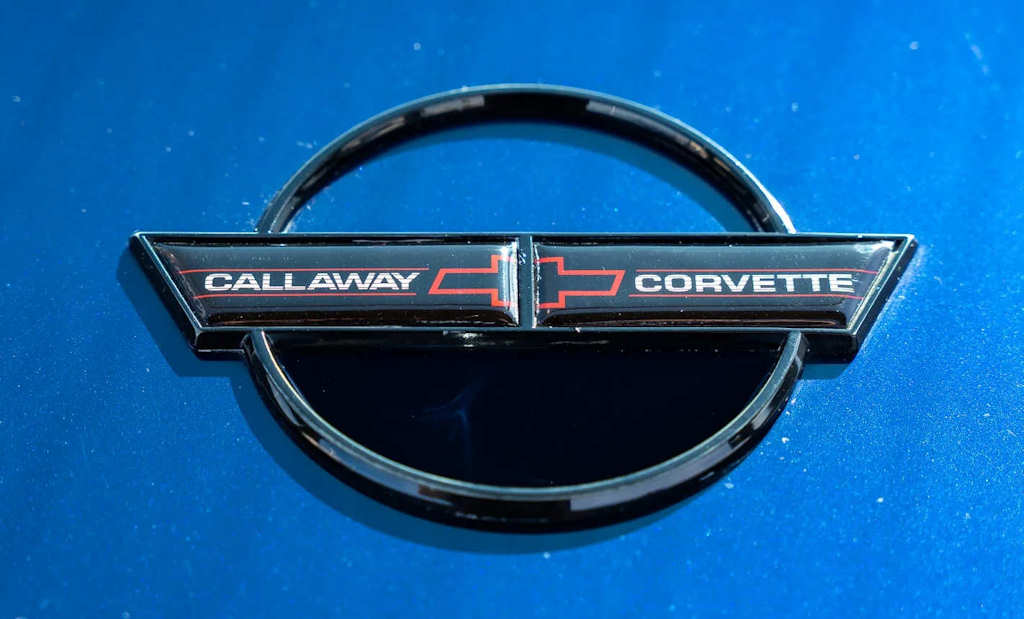
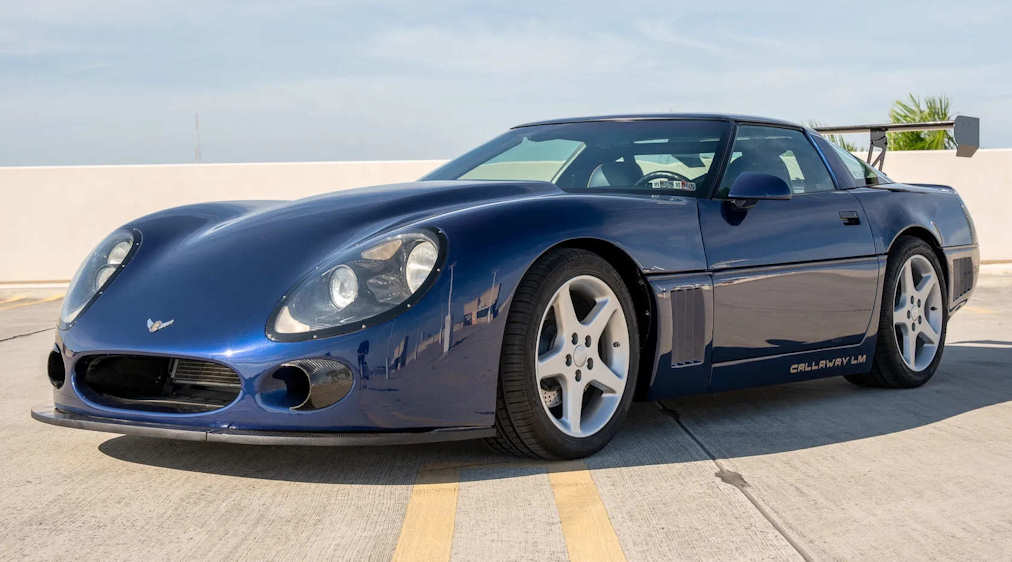
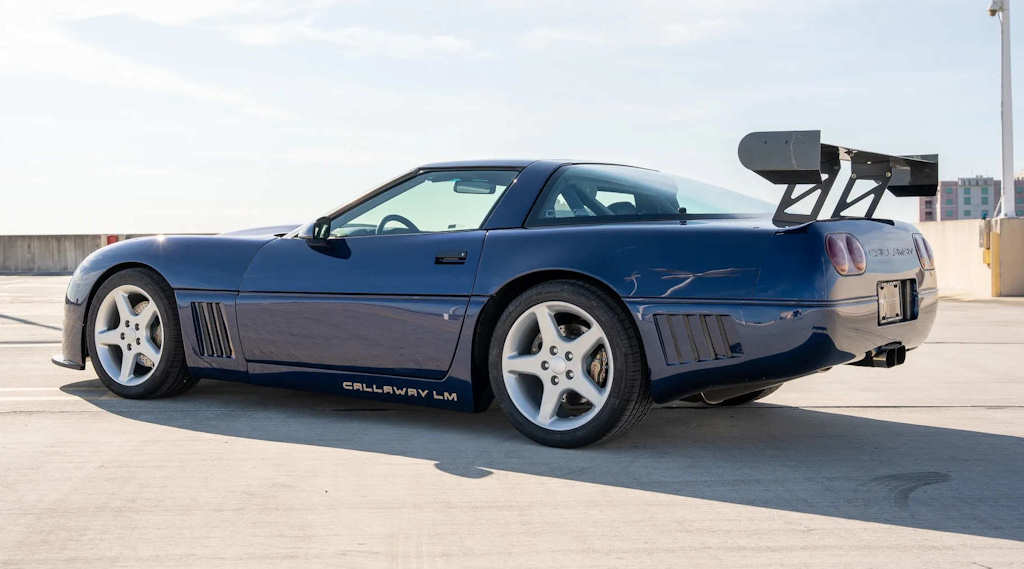
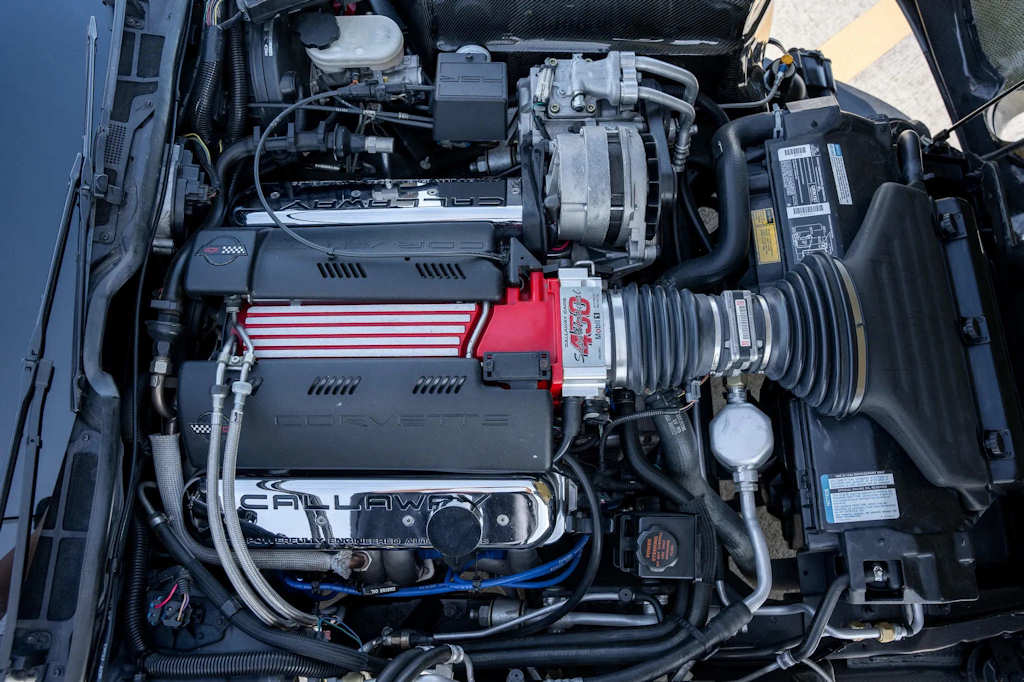
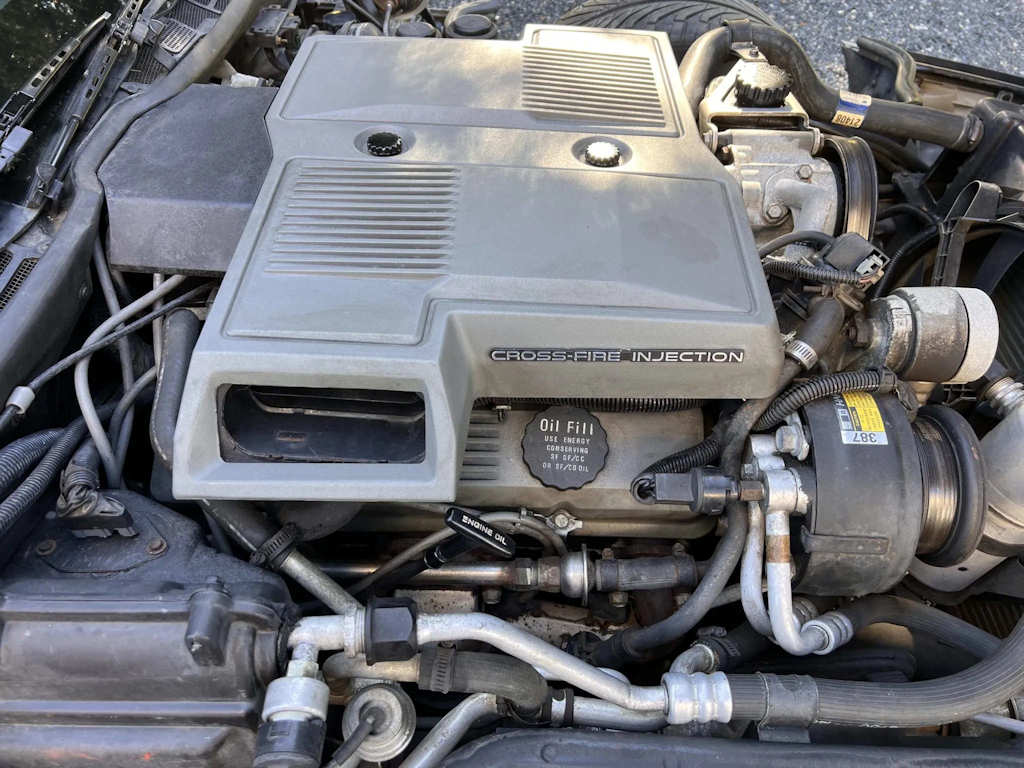
Cross-Fire Fuel Injection was standard with the 350cid engine and no
other engine options were available.
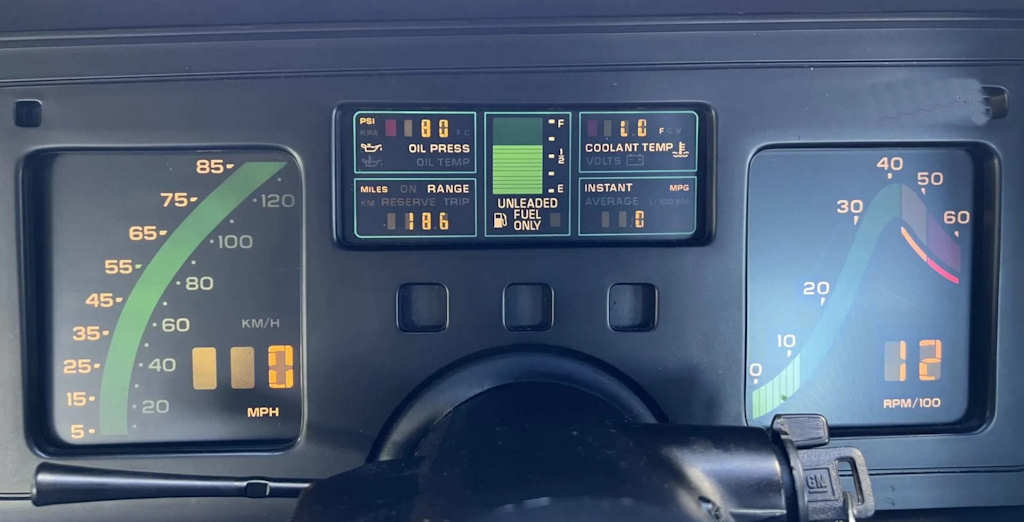
The 1984 Corvette introduced an all electronic instrumentation panel
with liquid crystal graphic displays for speedometer on the left side
and RPM indicator on the right; an analog dash was n ot available.
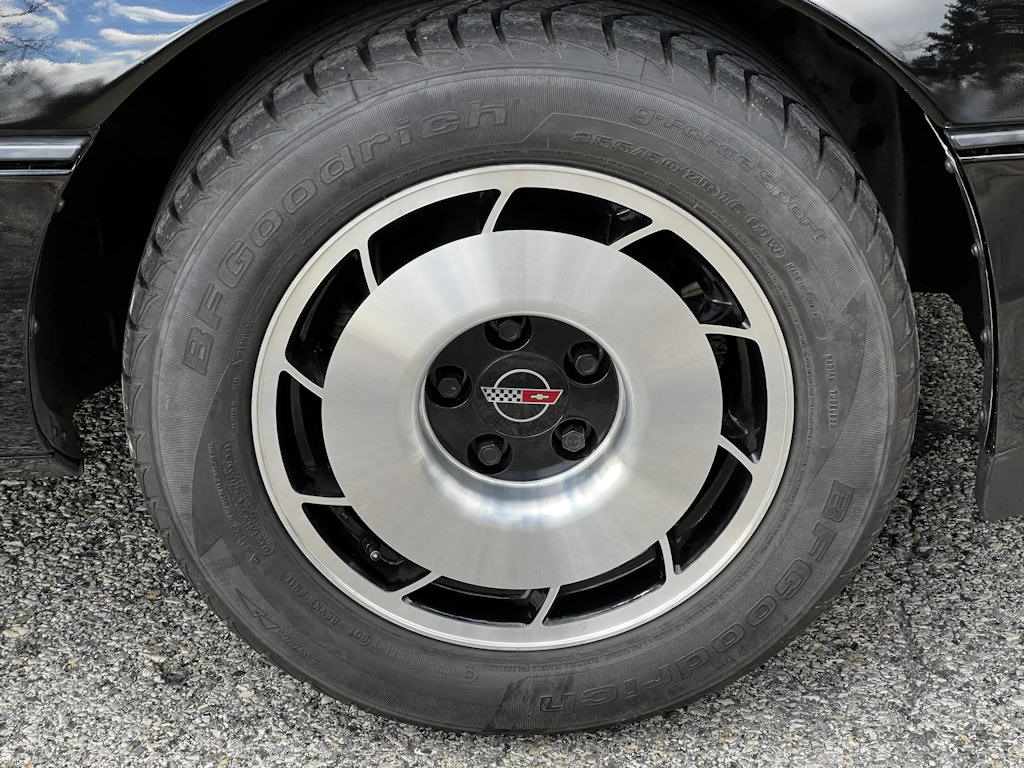
A 15-inch alloy wheels and P215/65R15 tires were initially scheduled
but changed to P255/50R16 tires and directional alloy wheels with 16x8.5
front and 16x9.5 rear for all models.
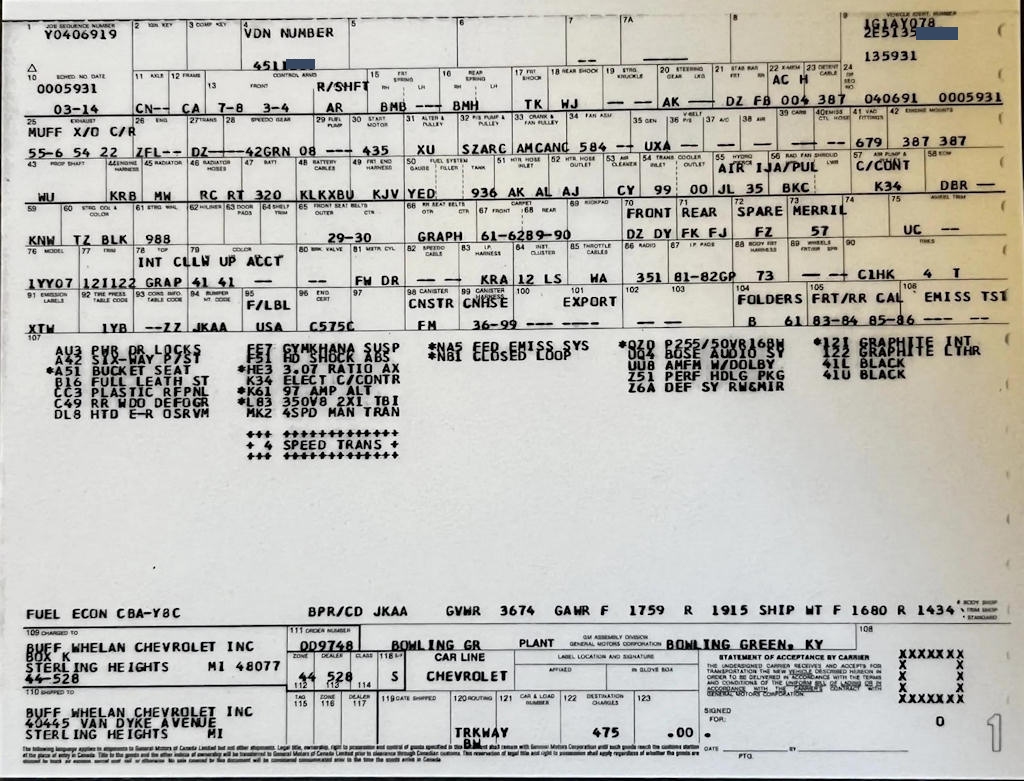
Typical 1984 Bowling Green Build Sheet
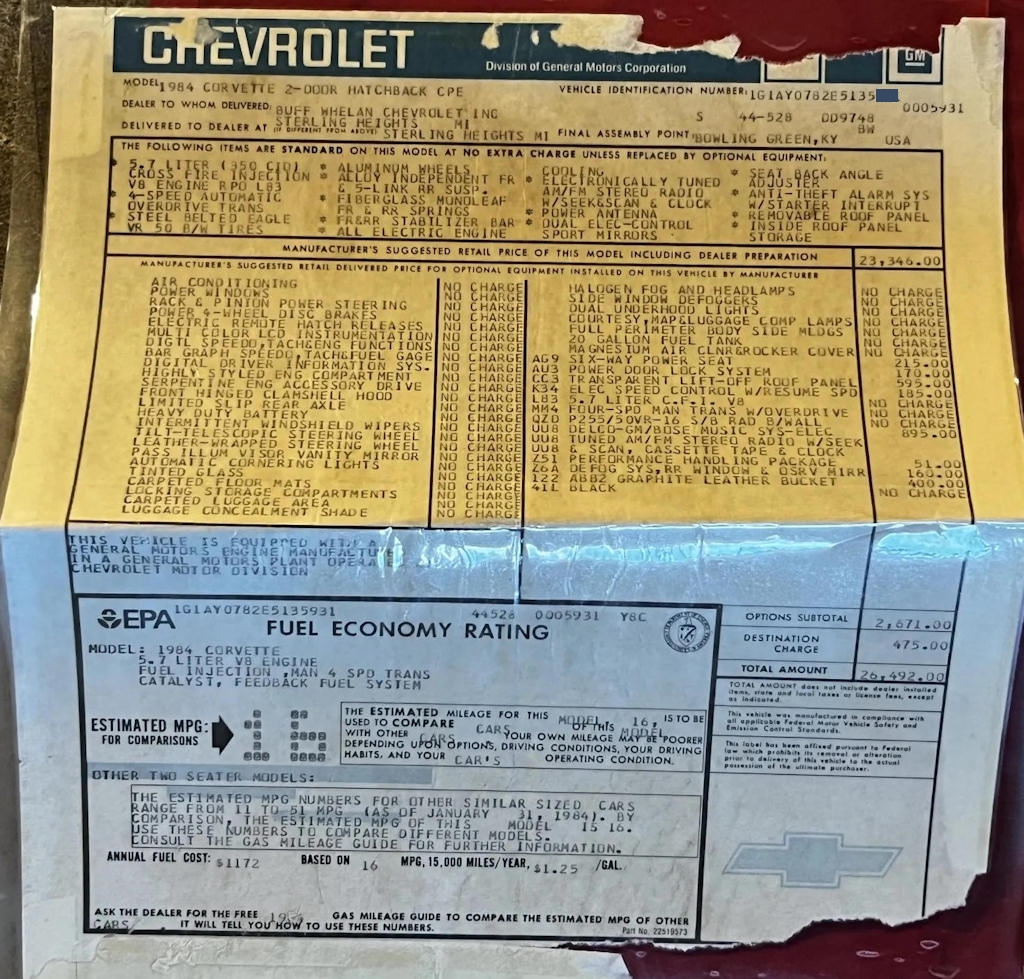
Typical 1984 Window Sticker
 1984 Trivia |
 1985 Trivia |
 1986 Trivia |
 1987 Trivia |
 1988 Trivia |
 1989 Trivia |
 1990 Trivia |
 1991 Trivia |
 1992 Trivia |
 1993 Trivia |
 1994 Trivia |
 1995 Trivia |
 1996 Trivia |
 Stickers & Calendars |
Home |
